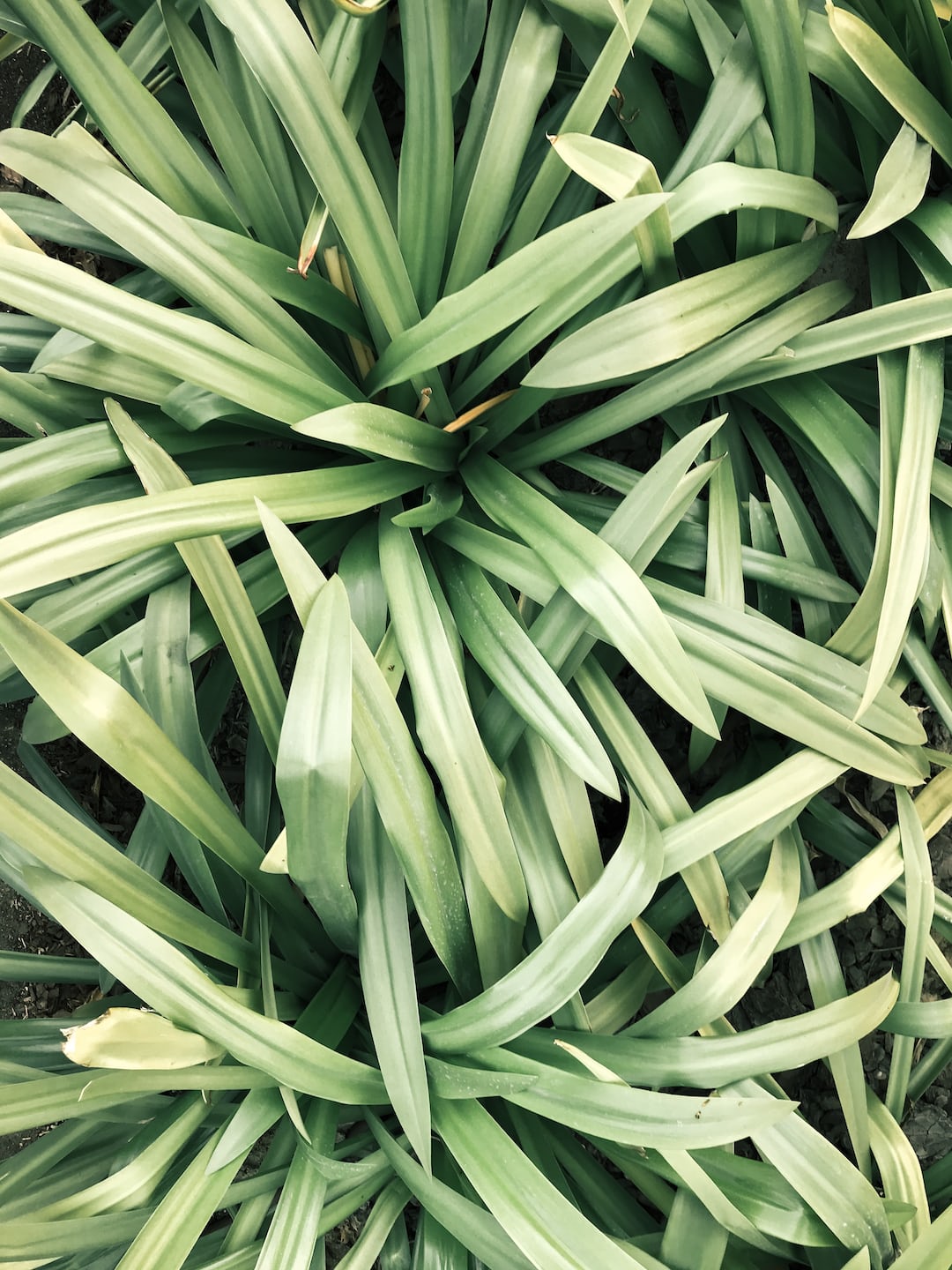Growing Lemon Grass at Home: Easy Steps for Healthy Plants

Growing Lemon Grass
Growing lemon grass brings flavor, fragrance, and freshness right to your backyard—no gourmet market necessary. With full sun, rich soil, and enough water, growing lemon grass becomes effortless even for rookie gardeners. Keep reading for simple, practical tips that'll turn your patio into an aromatic oasis in no time.
Growing Lemon Grass: quick start from store stalks or nursery pots
I keep a mother clump of Cymbopogon citratus on the patio every summer, then split it before frost and carry pieces indoors. It perfumes the afternoon like a citrus knife slicing through steam.
Propagation that always works
Grocery stalks root fast if the basal plate is intact and firm. Nursery starts save time, but I like the thrill of reviving a market bundle.
- Select 6 to 8 fat stalks with a pale, intact base and no mushy spots.
- Trim tops to 8 inches 20 cm to reduce transpiration, then peel one outer sheath to expose fresh tissue.
- Stand bases in 1 inch 2.5 cm of clean water in a bright, warm spot, changing water every 2 days.
- Roots show in 4 to 10 days at 75 to 85 F 24 to 29 C.
- Pot into a fast-draining mix when roots hit 0.5 to 1 inch 1.2 to 2.5 cm long.
- Keep evenly moist for 10 days, then let the top 1 inch 2.5 cm dry between waterings.
- Harden off outdoors for a week before planting into beds or big containers.
“Winter hardy to USDA Zones 10 to 11. Elsewhere, grow as a warm-season annual or overwinter indoors.” Missouri Botanical Garden
Site, soil, and containers
Full sun is non-negotiable for thick, flavorful stalks, so aim for 8 to 10 hours. Growth hums along at 77 to 95 F 25 to 35 C, sulks below 50 F 10 C, and collapses near 32 F 0 C.
Target a pH of 6.0 to 7.0 and soil that drains fast yet holds moisture. Containers need 5 to 7 gallons 19 to 26 L per clump with generous side holes to prevent soggy crowns.
Planting and spacing
Set plants level with the soil surface and firm gently. Space 24 to 36 inches 60 to 90 cm so the clump can breathe and thicken.
Mulch 2 inches 5 cm with shredded leaves or pine bark to cushion root temperatures and slow evaporation. Keep mulch off the crown to avoid rot.
Water and feeding for speed
Give about 1 inch 25 mm of water weekly in mild weather and up to 2 inches 50 mm in heat, delivered deep. I wait until the top inch dries, then soak the root zone.
Feed lightly but often for stout stalks. A slow-release fertilizer labeled around 14-14-14 every 8 to 10 weeks plus a monthly drench of fish or seaweed at half strength keeps color and vigor.
My reliable planting mix
- 40 percent high-quality potting mix with peat or coir
- 40 percent composted bark fines
- 20 percent perlite or pumice
- 1 cup 240 ml biochar or worm castings per 5 gallons 19 L, pre-charged with compost tea
Pruning, division, and staying tidy
I harvest outer stalks and leave the core to push new shoots. If a clump gets rangy, I shear leaves to 12 inches 30 cm and it rebounds fast.
- Every spring, slice off vigorous side fans with a clean soil knife.
- Trim tops to 8 inches 20 cm to limit stress.
- Replant divisions at the same depth, then water in with a kelp solution.
Overwintering north of zone 10
I lift divisions before first frost, pot them into 3 to 5 gallon 11 to 19 L containers, and cut foliage to 8 to 10 inches 20 to 25 cm. Indoors, I aim for 60 to 75 F 16 to 24 C with bright light.
Supplement with LEDs to 12 to 14 hours daily if windows run dim. Keep humidity around 40 to 50 percent and water sparingly to avoid lanky growth.
Harvest, flavor, and storage
Stalks taste best when finger-thick 0.5 to 0.75 inch or 1.2 to 2 cm. Twist outer stalks at the base or cut cleanly at soil level.
Peel the tough sheath, bruise the core, and add late in cooking for a clean citrus hit. I freeze chopped cores and knot the leaves for broths and teas.
“Lemongrass essential oil is dominated by citral 65 to 85 percent, the compound behind the lemon aroma.” FAO and peer-reviewed analyses
Pests, diseases, and quick fixes
- Rust: Orange pustules on leaves in humid spells. Thin clumps, water early, and remove spotted foliage.
- Spider mites: Fine stippling and webbing in hot, dry rooms. Rinse foliage, raise humidity, and use horticultural soap weekly until cleared.
- Root rot: Limp centers in heavy soils. Improve drainage, reduce watering, and replant high.
- Tip burn from salts: Brown tips after repeated liquid feeds. Leach pots with clear water every month.
- Pale new growth: Nitrogen or iron shortfalls. Feed lightly and check pH near 6.5 for best uptake.
Varieties, lookalikes, and what to buy
West Indian lemongrass Cymbopogon citratus is my culinary pick for softer leaves and sweeter cores. East Indian lemongrass C. flexuosus brings stronger aroma and tougher leaves that suit teas and distillation.
- Citronella grass C. nardus and C. winterianus smells sharp but tastes harsh. Plant for fragrance, not for soup.
- Seeds exist, yet starts from divisions or rooted stalks stay truer to type and mature far faster.
- Look for stout, pale bases and active side shoots on nursery plants, with zero mush at the crown.
Gear that actually helps
- Containers: 5 to 7 gallon 19 to 26 L nursery pots or a 20 gallon 76 L trough for a mother clump.
- Fertilizer: Slow-release prills plus a mild organic liquid for in-season tweaks.
- Media: Chunky bark-based potting mix with added perlite for drainage.
- Lights: Full-spectrum LEDs providing roughly 150 to 250 µmol m^-2 s^-1 at leaf height for indoor overwintering.
- Tools: Soil knife for division, bypass snips for harvest, and a cheap pH meter or strips for spot checks.
Companions and layout
I park lemongrass on the windward edge to shelter basil and Thai chilies. The clump forms a living windbreak that warms the bed and slows moisture loss.
Give it the sunniest corner and let shorter herbs sit in the lee. Airflow stays clean, and harvests stack up.
How I hit peak flavor
I feed lightly after each big harvest and keep the soil evenly moist during heat waves. Sun, steady water, and timely cutting build thick, juicy cores.
A stressed clump throws threadlike stalks with weak aroma. A pampered clump tastes like lime zest and lemongrass tea had a bright, happy child.
Evidence and expert notes
University of Florida IFAS reports clumps reaching 3 to 6 feet 0.9 to 1.8 m tall in full sun. That matches my patio-grown plants in 20 gallon troughs by late summer.
RHS and USDA materials list lemongrass as frost tender and best treated as a warm-season container plant in cool climates. I follow that guidance to the letter north of zone 8.
Quick stats for Growing Lemon Grass
- Sun: 8 to 10 hours direct
- Temp: 77 to 95 F 25 to 35 C best, frost kills near 32 F 0 C
- Soil pH: 6.0 to 7.0
- Water: 1 to 2 inches 25 to 50 mm weekly, deep and infrequent
- Spacing: 24 to 36 inches 60 to 90 cm
- First harvest: 90 to 120 days from planting
- Height: 3 to 6 feet 0.9 to 1.8 m
Frequently searched tangents
- Can I root supermarket lemongrass? Yes, if the base is intact and firm, as outlined above.
- Is lemongrass safe for pets? The plant can upset stomachs if chewed and the essential oil is more problematic, which aligns with ASPCA cautions about similar aromatic grasses.
- Does lemongrass repel mosquitoes? The essential oil scented candles smell great, but the plant alone outdoors does little in open air.
- Can I grow it in partial shade? It survives, but stalks stay thin and flavor drops.
My favorite weekly routine for bulletproof plants
Monday: quick finger test, water if the top inch is dry, then check for mites or rust. Thursday: harvest outer stalks for dinner and hit with a light liquid feed.
First weekend of each month: flush containers with clear water and top-dress with compost. Early spring and late summer: divide and reset the most vigorous fans.
Cheatsheet: Home Lemon Grass Growing Made Simple
🌱 Start from Cuttings or Seed
- Fresh lemon grass stalks (grocery or nursery)
- Place base in water; roots sprout in 2-3 weeks
- Transplant when roots ≥ 2” (5 cm)
☀️ Sun & Placement
- 6-8 hrs full sun daily
- South-facing window or patio for pots
🪴 Soil & Potting
- Rich, well-draining soil; pH 6.0–7.0
- Container: min. 12” (30 cm) diameter
- Space: 24” (60 cm) between plants outdoors
💧 Water & Feeding
- Keep soil moist but not soggy
- Weekly feeding: diluted liquid fertilizer
- Mulch to retain moisture
✂️ Harvesting
- Harvest stalks when >12” (30 cm) tall
- Twist or cut at soil line; new shoots regrow
- Harvest outer stalks, leave inner core
🛠️ Tools and Products You'll Need
- Sharp knife or scissors
- Watering can or spray bottle
- Trowel
- Organic compost
- Pots or garden bed space
🌿 Health, Nutrition & Value
- Vitamin C, iron, antioxidants
- Supports digestion, immune health
- 100g fresh = ~99% daily manganese
- Fresh stalks outperform dried for aroma
- Year-round supply, self-sufficiency
📊 Quick Stats
- 90%+ root success from cuttings
- Harvest in 4-6 months
- One plant yields up to 15+ stalks/season
- Thrives in 70-95°F (21-35°C)
Step 1: Place stalk bottoms in a glass of water; change water every 2 days until roots form.
Step 2: Plant in rich, well-drained soil, covering roots fully; space 24” (60 cm) apart.
Step 3: Water regularly to maintain moist soil; assure 6-8 hours full sun daily.
Step 4: Fertilize lightly every week; apply mulch to conserve moisture.
Step 5: Cut mature stalks at base as needed; leave core for regrowth.
Common Questions About Growing Lemon Grass
What soil conditions coax lemon grass into thriving?
Lemon grass favors loamy, well-draining soils with a good dose of organic matter. To persuade vigorous growth, enrich your planting spot with compost or aged manure and sustain slight moisture without sogginess.
How often does lemon grass crave watering?
Regular hydration speaks volumes to lemon grass, especially during warm weather. Allow the soil surface to dry between watering sessions, watering deeply twice a week generally satisfies its thirst.
Can lemon grass withstand chilly climates outdoors?
Lemon grass tolerates warmth far better than cold. If you reside where frost bites deep, consider cultivating lemon grass in movable pots or containers. When temperatures dip, simply relocate your aromatic greenery indoors for safety.
What's the best way to propagate lemon grass?
Propagation unfolds naturally through division or stalks rooted in water. Snip sturdy stalks, place them into water-filled jars until roots emerge, then transplant them into rich, airy garden soil with ample sunlight.
Does lemon grass require special fertilization?
Nitrogen-rich organic fertilizers, such as diluted fish emulsion or compost tea, deliver optimal nourishment to lemon grass. Feed lightly every few weeks to inspire lush, aromatic growth.
Are pests particularly drawn to lemon grass?
Lemon grass repels more pests than it invites, yet occasional visits from aphids or spider mites might occur. Combat these invasions effectively with gentle insecticidal soap sprays or neem oil treatments.
When and how should lemon grass harvesting begin?
Harvesting begins once stalks reach about 12 inches tall and at least half an inch thick. Slice stalks cleanly at the base, leaving the root crown unharmed for continuous growth and subsequent harvests.
Growing Lemon Grass rewards patience and a little grit. Start with rich soil, keep the roots damp but never soggy, and don’t let the stalks get crowded—lemongrass hates a traffic jam. Plenty of sun keeps those blades sharp and fragrant, while regular trimming gives you fresh supply for the kitchen and encourages bushier growth. Watch for pests, but don’t lose sleep—this hardy plant usually shrugs off trouble.
If you’ve mastered growing lemon grass, consider adding more variety to your herb patch—try your hand at growing thyme or a punchy row of dill. Nothing beats the satisfaction of snipping your own herbs, straight from the source. Good soil, sun, and patience: that’s the real recipe.



